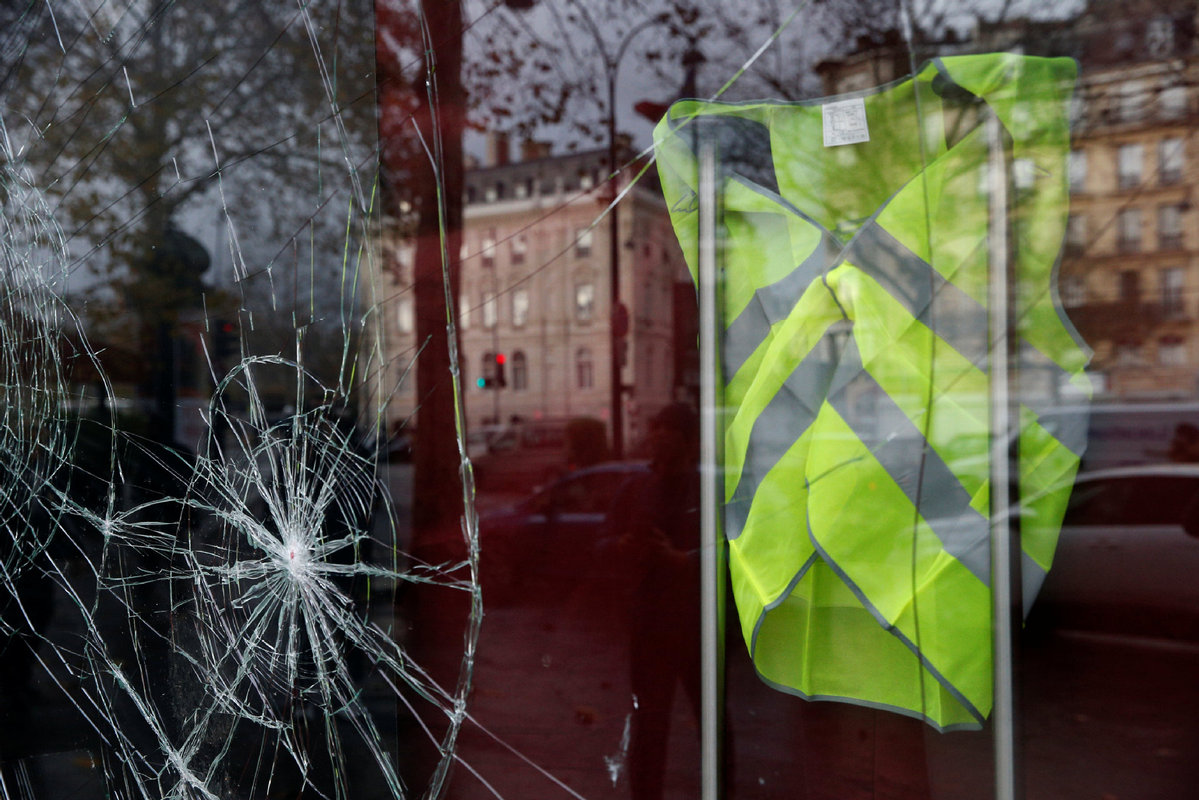Macron's troubles maybe cause for concern in the EU


While French President Emmanuel Macron was dining with world leaders in Argentina, most French were watching the violent protests spreading throughout France. Ostensibly sparked by a hike in diesel tax, the demonstrators were protesting about a range of issues, including higher taxes, a longer working week and reduced state benefits.
Macron narrowly won the presidential elections in 2018 beating off challenges from the extreme right and left. Together these voters constitute a majority and are essentially nationalist and anti-globalization. Macron has tried to tackle the long-standing protectionist attitudes in France and introduce more flexibility into the labor force. But his aloof attitude has not endeared him to the public, with opponents charging him with preferring pomp and glitz to mixing with ordinary workers.
The hike in diesel prices was meant to demonstrate his commitment to a green economy. Marcon is one of the world’s strongest defenders of the Paris climate change agreement and is determined to show that France can lead on the implementation of commitments.
But the president has under-estimated the opposition in rural France, heavily dependent on their cars and vans for work and pleasure, to the price rise. Diesel fuel has risen 23 percent in the past year to its highest point since the early 2000s and a further increase is foreseen for January.
What started last month as small, limited protests have spread throughout France with demonstrators blocking highways and fuel depots. Last weekend it reached a new pitch with demonstrators descending on Paris and fighting pitched battles with the riot police in the centre of the capital. Three people died and 160 were hospitalized in the fighting.
Macron was visibly shaken on his return from the G20 summit and immediately went to thank the police and firemen who had faced up to the protestors. He has tried to strike a more conciliatory tone saying he was open to discussion about how the rise in fuel tax can be implemented. But he shows no sign of rescinding the increase which he describes as an “essential part” of his economic reforms.
At the same time, he has ordered his prime minister to meet with trades unions and other party leaders seeking a consensus on the need to avoid violence. With a five year term, Macron is politically secure even though his poll ratings are in the mid 20s. His next electoral test will be next May in the elections to the European Parliament. Other parties in the EU, especially the Liberals, have been flirting with Macron’s En Marche to try and form a coalition in advance of the elections. So far Macron has not decided with whom to ally. If he resolves the troubles at home he may still be a sought after partner. But if he fails then the suitors may disappear.
How Macron performs at home will also have a direct impact on France’s standing in the European Union. With Merkel in her twilight years as chancellor, and the United Kingdom exiting the EU, Macron is widely viewed as the potentially most influential leader in Europe. He has tried to persuade Germany to move faster on reform of the eurozone and support his plans for a stronger European defense. But Berlin has been hesitant, partly because of the divisions within the weak grand coalition government, and party because many are waiting to see who will succeed Merkel. The ruling CDU party decides this weekend on a successor.
Macron has thus been frustrated on the European and domestic stages. It will require a remarkable change in his fortunes if he is to achieve his policy goals. Much will depend on the next moves of the gilets jaunes (yellow vests) the ad hoc, leaderless, coalition of protestors which have caused havoc in the past week .
Fraser Cameron is a political analyst based in Brussels

































